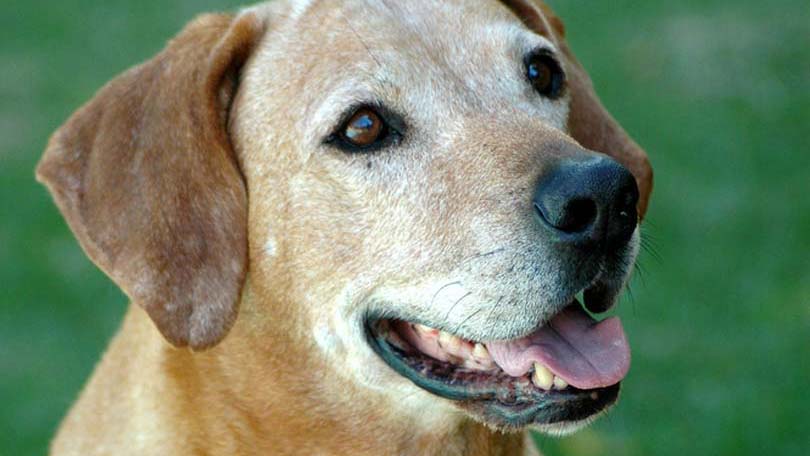
Most people are aware that they shouldn’t feed their dogs certain foods such as onions, chocolate, raisins, and grapes. But people are often curious about what it’s safe to feed their dogs. What human foods can dogs have? You’d probably be surprised! Dogs can eat a lot of the same healthy foods that you eat.
Meats
Biologically, dogs are carnivores and it’s fine to give your dog meat protein from good animal sources. That means you can give your dog some chicken, beef, lamb, pork, turkey, or meat from other kinds of animals. If you are cooking these meats for yourself, it’s okay to set aside a portion for your dog. Most dogs prefer their meat plain so leave off the seasoning and sauces. Your dog may turn up his nose if you cover a piece of steak in steak sauce, especially spicy sauces. If you have a small dog, in particular, it’s a good idea to cut these meats up in small pieces first. Many dogs will wolf down meat when it’s offered (pun intended), so cutting it in small pieces first can reduce the chance that he’ll choke.
Vegetables
Wolves and dogs in the wild don’t necessarily eat a lot of vegetables but many pet dogs like them and most are perfectly safe to give to your dog. Wolves and feral dogs do eat vegetable matter when they consume the stomach and intestinal contents of their prey, so it does form part of their diet in the wild. Many dogs like broccoli, carrots, green beans, cauliflower, zucchini, squash, and other veggies. It’s fine to give small pieces of some of these vegetables as treats – they are crunchy and lots of dogs like them raw. But if you want your dog to get any nutrition from them, they need to be pureed or broken down some. Putting them in a food processor for a minute and/or cooking them for a few minutes can allow your dog to get more of the nutrition from them. Just remember that dogs should not eat onions and should only have garlic in small amounts.
Eggs and Dairy
When it comes to what human foods can dogs have, eggs are great for dogs and many dog foods include them in their ingredients. Dogs are able to digest them very easily and get lots of protein from them. Egg whites do contain enzyme inhibitors and a substance called avidin, a Biotin inhibitor, but Biotin deficiencies are very rare. Your dog would have to eat a ton of egg whites to have a Biotin deficiency. Also, egg yolks have lots of Biotin, so if you feed the whole egg, it balances out. As long as you cook the eggs, these inhibitors will be neutralized. So, it’s fine to give your dog some scrambled eggs or eggs cooked some other way a couple of times per week.
You can also give your dog some other dairy products. Some dogs are lactose-intolerant so it’s usually not a good idea to give your dog milk, but there are still plenty of other dairy products you can give your dog. You can add a little yogurt to your dog’s diet, for example. A cup of lowfat yogurt has half the lactose of a cup of whole milk and most dogs have no problems eating yogurt. It’s also a good probiotic that aids digestion. A half cup of cottage cheese has even less lactose. You can also give your dog American cheese, Swiss cheese, or Cheddar cheese: they have very little lactose.
Peanut butter and nuts
Peanut butter is not really made from a nut, but many people think it is. Peanuts are a legume. It grows from a plant. Peanut butter is a great favorite with dogs and it’s perfectly fine to give your dog peanut butter, peanut butter cookies, and peanut butter dog treats.
Many nuts are also safe for your dog but some are not. Almonds are fine and you will find many dog food treats made from almond flower. However, macadamia nuts are NOT safe to give to dogs. They have a toxin that is dangerous to dogs. Many walnuts are toxic to horses and some people have assumed they must be toxic to dogs but this does not seem to be true. However, dogs can always choke on large nuts in the yard, though this is not the same thing as toxicity.
There are other foods that you could give your dog but they probably aren’t very healthy for him to eat. For instance, it won’t hurt your dog to eat pasta or bread but these foods aren’t very good for his waistline.
You may be wondering if you should cook these human foods or give them to your dog raw. That’s really up to you. People who prefer a raw diet claim that the foods lose some of their nutritional value when they are cooked, and that’s true. However, raw foods also have more risks associated with Salmonella – mainly to you rather than to your dog. Dogs have strong stomach acids and they are usually capable of coping with Salmonella when it is present on food. But people who handle raw food can spread bacteria from food to food and to other people. So, cooking food is usually safer when people are involved in its preparation.
No matter how you choose to prepare your dog’s food, there are plenty of human foods that you can share with your dog.
